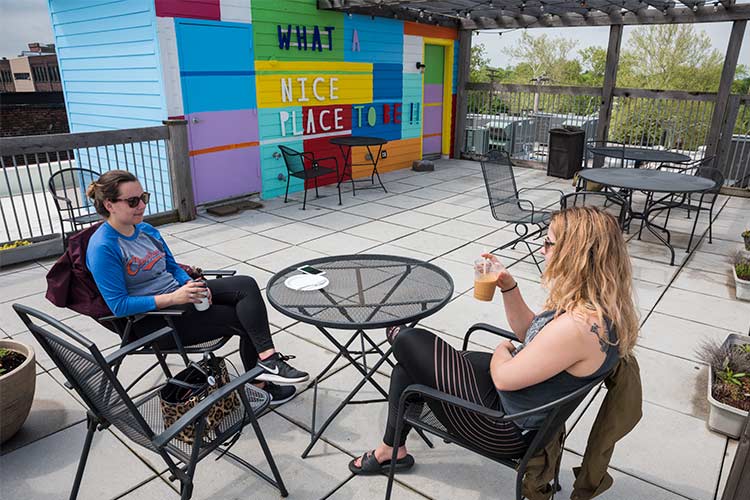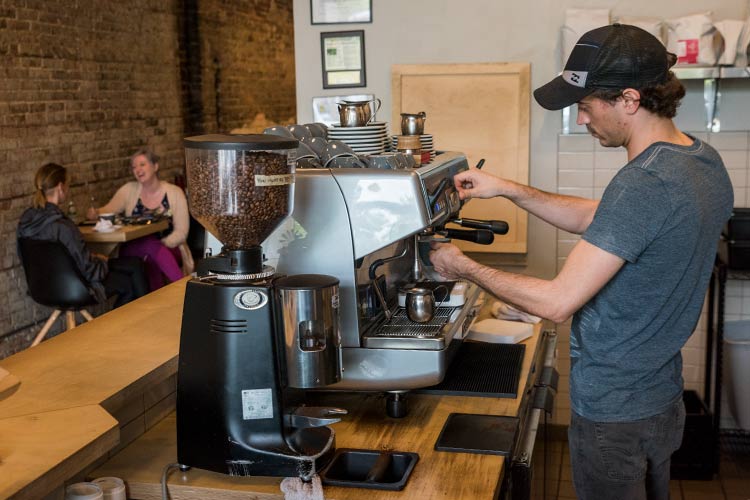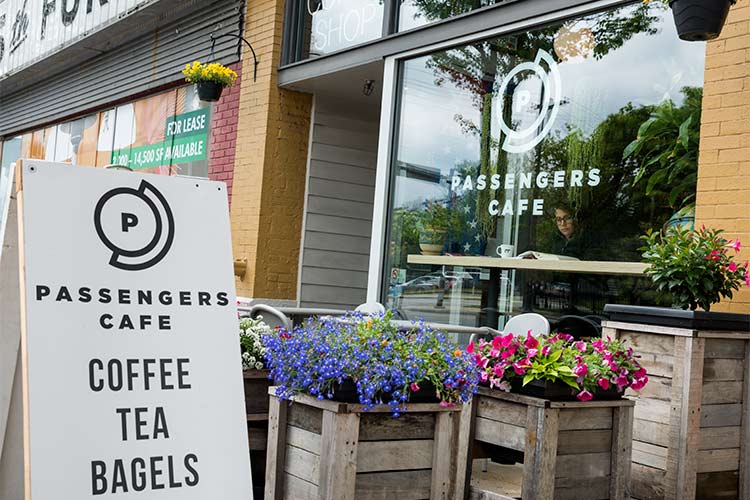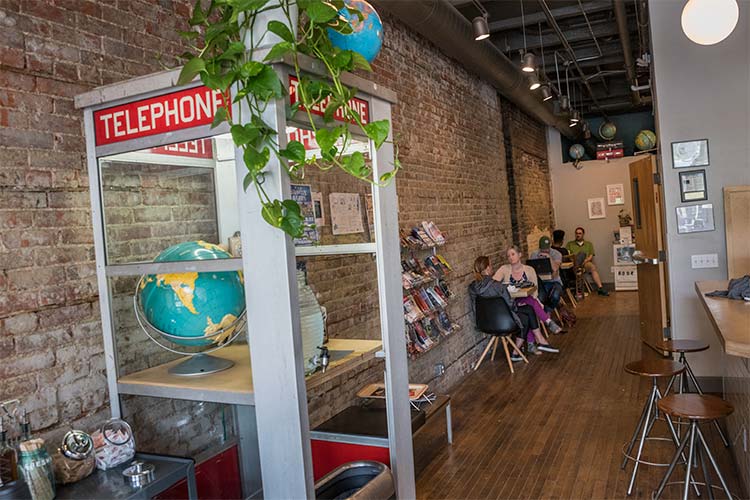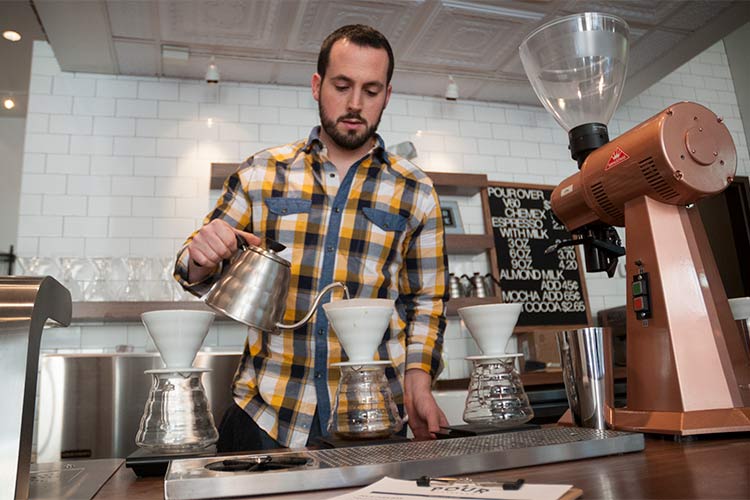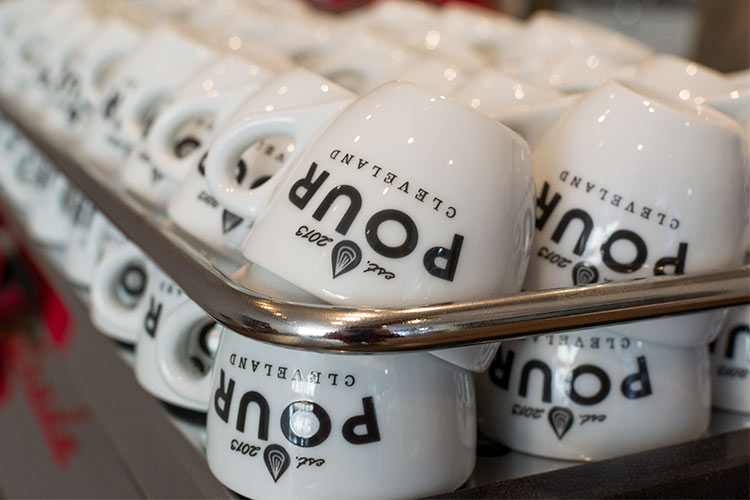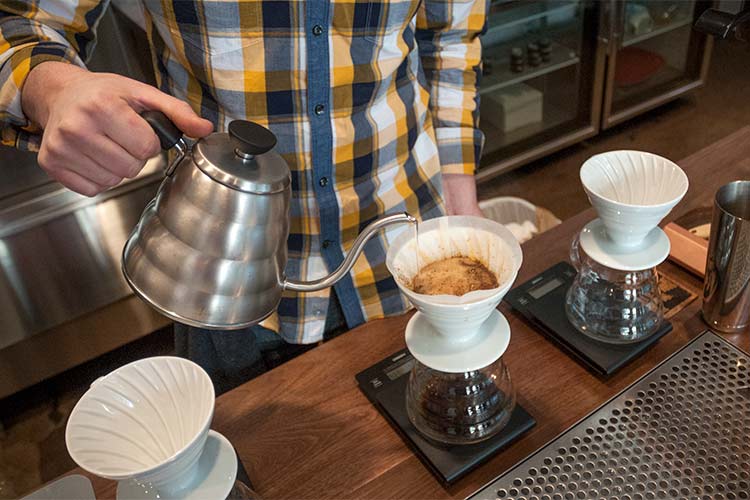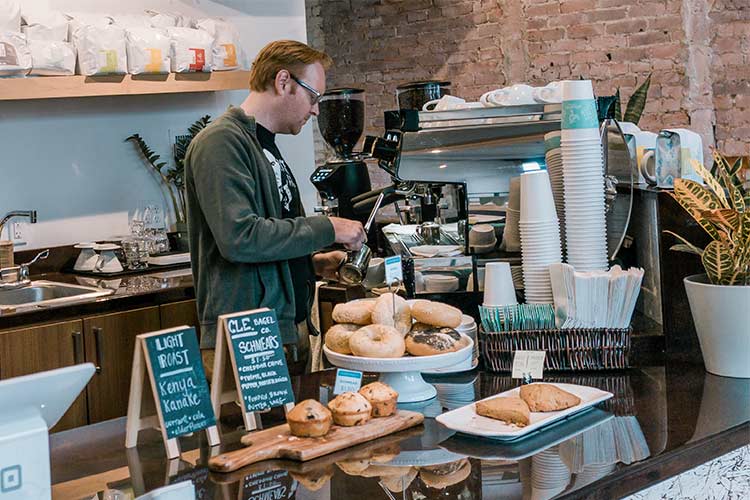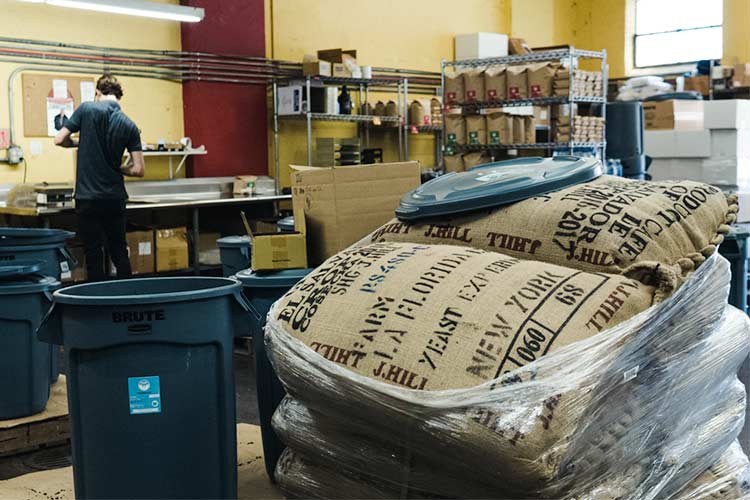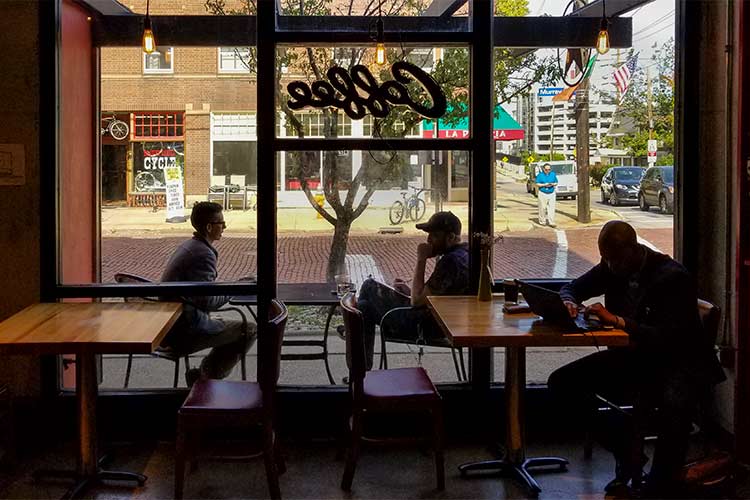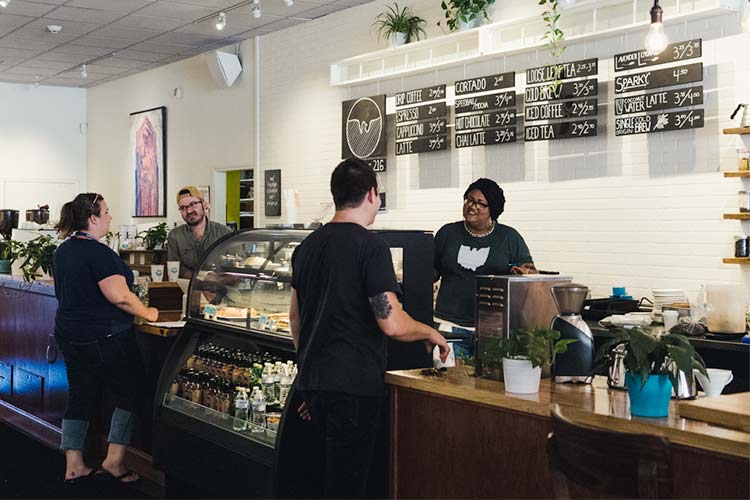
Why Cleveland is an underrated coffee town
Some people may instantly think of Seattle—the birthplace of Starbucks—when they discuss leaders on the national coffee scene. Others might point to trendy newcomers like Portland or major metropolitan cities like New York and San Francisco. But there’s a potent coffee scene percolating right here in Cleveland, with new java stops cropping up almost as quickly as breweries and restaurants.
Trey Kirchoff, owner of Passengers Café in Ohio City and Coffee, Coffee, Coffee in Old Brooklyn, thinks it’s time Cleveland coffee gets its due.
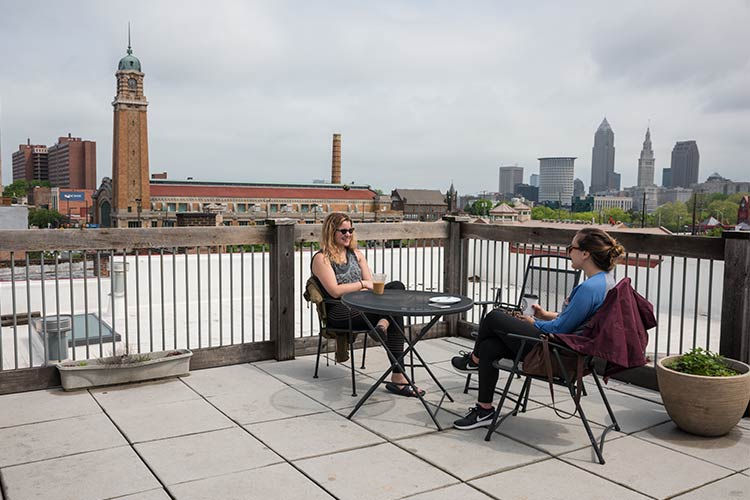 Passengers Cafe
Passengers Cafe
“Cleveland is justifiably proud of itself when it comes to culinary talent, and then there are micro-breweries opening every other week,” says Kirchoff. “But people don’t think about coffee the way they think about food. It’s sort of a well-known secret that the coffee here is so good. It’s different and dynamic, and people are getting really good at what they do.”
The city’s ever-growing roster of entries ranges from multi-location favorites like Rising Star Coffee and Phoenix Coffee to popular niche entries like Lakewood’s Play Grounds (geared at both kids and adults), Tremont’s Loop (also a record shop), and the Campus District's Artefino Café (which doubles as an art gallery).
“Cleveland has an exceptional coffee scene by any standard,” says Kirchoff. “We definitely go toe-to-toe with the coffee scene in any other major cities.”
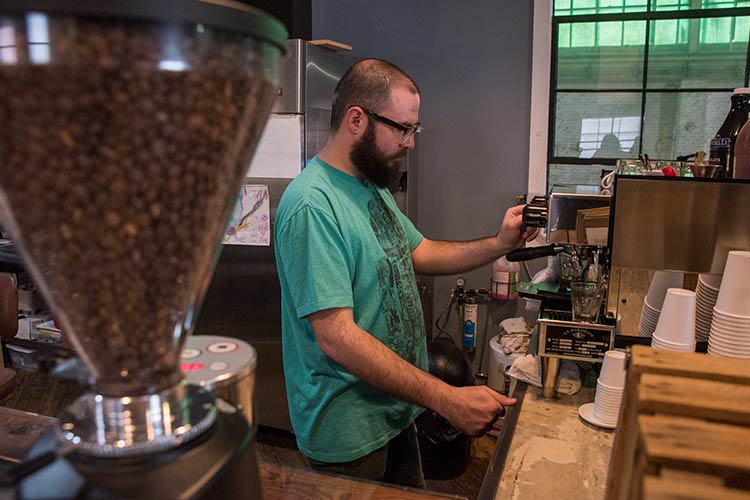 The city’s coffee reputation is steadily gaining momentum, with Cleveland having been chosen as one of Travel + Leisure’s “Best Coffee Cities” back in 2014. Phoenix Coffee was also featured among Cosmo’s “Best Coffee Shops in America” in 2016, while Six Shooter Coffee owner Peter Brown was named one of Crain's Cleveland’s “Twenty in their 20s” last year.
The city’s coffee reputation is steadily gaining momentum, with Cleveland having been chosen as one of Travel + Leisure’s “Best Coffee Cities” back in 2014. Phoenix Coffee was also featured among Cosmo’s “Best Coffee Shops in America” in 2016, while Six Shooter Coffee owner Peter Brown was named one of Crain's Cleveland’s “Twenty in their 20s” last year.
To Kirchoff, it’s a blend of tradition and innovation helping to cement Cleveland as a coffee destination. “What we have in Cleveland is a history of some roasters who have been around for a while—some of them for decades—developing the palates of people,” observes Kirchoff. “We have a city of people who know how to drink good coffee.”
The new wave
Most of the cities making a name in the coffee world have embraced the idea of “third-wave” coffee, and Cleveland is no exception. The concept revolves around an artisanal approach, highlighting small, locally owned-and-operated businesses in contrast to homogenous national chains.
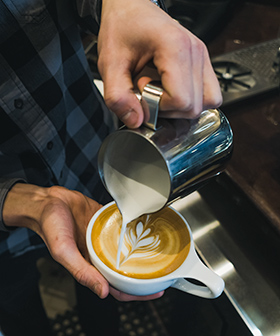 Of course, Phoenix Coffee has been following this philosophy for decades—having risen from the ashes of Arabica Coffee House, one of Cleveland’s first and most influential craft coffee shops. Today, Phoenix has five locations and a roastery on St. Clair Ave.
Of course, Phoenix Coffee has been following this philosophy for decades—having risen from the ashes of Arabica Coffee House, one of Cleveland’s first and most influential craft coffee shops. Today, Phoenix has five locations and a roastery on St. Clair Ave.
Christopher Feran, director of coffee, says they focus on responsibly-sourced coffee from places like Guatemala, Brazil, and Colombia. Most recently, Feran has been working with Finca Esperanza, an all-organic, bird-friendly farm in Guatemala.
“This is our second year purchasing from [owner] Ana Vizcaino and the first lot from a plot on her farm that I specifically selected for Phoenix Coffee,” Feran explains. “Finca Esperanza was formerly commercial coffee and overly fertilized and fumigated, but over the last six years, she's rescued and replanted it. You can taste the results in the cup—and the farm is just as beautiful.”
Phoenix’s plot grows Caturra, and Feran says they should be rolling it out in about two weeks. “It’s sweet, juicy, and structured with tropical fruit acidity and notes of caramel and orange,” he explains. “It’s a delicious coffee.”
Many third-wave businesses are micro-roasters (those who roast their own coffee) and multi-roasters (those who curate coffee from various roasters).
Six Shooter embodies the former approach, roasting beans in small batches on-site at its Flats location. Brown has a tap behind the roast bar, and he says often they will draw a cup for a customer, just to gauge reaction. Though customers often say they prefer a "medium roast," Brown is quick to set them straight. “All of our coffees are medium roasts,” Brown says. “It’s the flavor notes [that matter].”
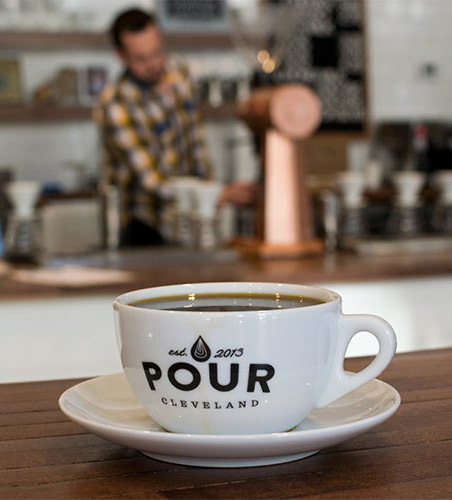 Pour Cleveland takes the latter approach as Cleveland’s first multi-roaster pour over and espresso bar—sourcing coffee from all over the world. Currently, Pour is showcasing several selections from Berlin-based Five Elephant, including a chocolate-y Brazilian espresso and a Kenyan pour tinged with strawberry and rhubarb.
Pour Cleveland takes the latter approach as Cleveland’s first multi-roaster pour over and espresso bar—sourcing coffee from all over the world. Currently, Pour is showcasing several selections from Berlin-based Five Elephant, including a chocolate-y Brazilian espresso and a Kenyan pour tinged with strawberry and rhubarb.
“We hadn’t tasted anything else like it from the U.S. It was everything we look for in coffee—brightness, sweetness, clear and interesting flavors,” says Pour’s Charles Eisenstat. “The point is to show Cleveland what else is available out there in the world.”
Pour takes a scientific approach to their coffee, even giving special attention to the water they are using. Additionally, Eisenstat has trained with Durham, N.C.-based Counter Culture to ensure he is employing best practices.
“One of the reasons I love coffee is because it constantly challenges me to think and rethink of new and better ways to brew it,” he says. “We take a lot of pride in each coffee we serve, and each part of the brewing process has been considered to improve our cup quality from the day we opened to today.”
Location, location, location
The best cup of coffee in Cleveland may vary depending on where you drink it.
“We find that certain stores have cult followings for certain things,” says Phoenix’s Feran. “Our east side stores definitely brew quite a bit of dark roasts, while the warehouse district and Ohio City stores go through more of our single-origin and lighter roasts.”
At Six Shooter, Brown sees the same diversity. “We see a lot more purchases of our specialty seasonal drinks in the Flats, and we have more purchases of small-batch drip coffee at our Waterloo location,” he explains.
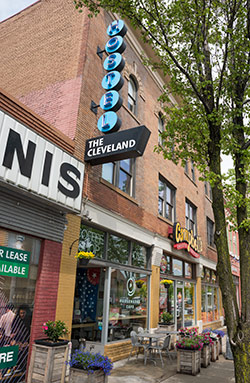 Since Passengers Café is located in the Cleveland Hostel, Douglas gets to serve a variety of people while showing off Cleveland at the same time. “The blokes from Australia drink coffee a lot differently than the hipsters in Cleveland,” he observes. “The Kiwis and Aussies like long black Americanos (espresso with hot water), while some people drink Rocket Fuel (cold-brew coffee mixed with A2 grade chocolate milk), which is the most Cleveland drink we offer.”
Since Passengers Café is located in the Cleveland Hostel, Douglas gets to serve a variety of people while showing off Cleveland at the same time. “The blokes from Australia drink coffee a lot differently than the hipsters in Cleveland,” he observes. “The Kiwis and Aussies like long black Americanos (espresso with hot water), while some people drink Rocket Fuel (cold-brew coffee mixed with A2 grade chocolate milk), which is the most Cleveland drink we offer.”
Local coffeehouses also differentiate themselves by look and feel. Brown says that Six Shooter’s Waterloo Café and Flats Roastery intentionally sport a” less polished” industrial feel, while Kirchoff describes his cafes as “treehouse scrappy.” The Ohio City outpost of Phoenix has a turntable spinning selections from the staff’s personal collections, and it’s been so popular that they’re adding one to the Warehouse District location.
According to Eisenstat, Pour was designed to be conducive to conversation, with communal seating and other distinct features. “We wanted our baristas to be approachable and be able to talk coffee with customers,” says Eisenstat. “Our counters are lower than typical bar heights to break down barriers, and our espresso machine and pour over bar are low-profile so people can watch us brew and ask questions.”
Pour also hosts free Saturday cuppings to educate customers. “There's a lot that can go wrong in brewing coffee,” Eisenstat says. “At the cuppings, we have a set recipe to eliminate those brewing errors. It’s essentially a steeping to get to the essence of the coffee.”
For a more upbeat experience, many area coffee houses are now offering events that measure up to any bar or club experience in town. “Latte Throwdowns” take place at various Cleveland coffee shops on a regular basis. (Rising Star is having one today at its Hingetown location.)
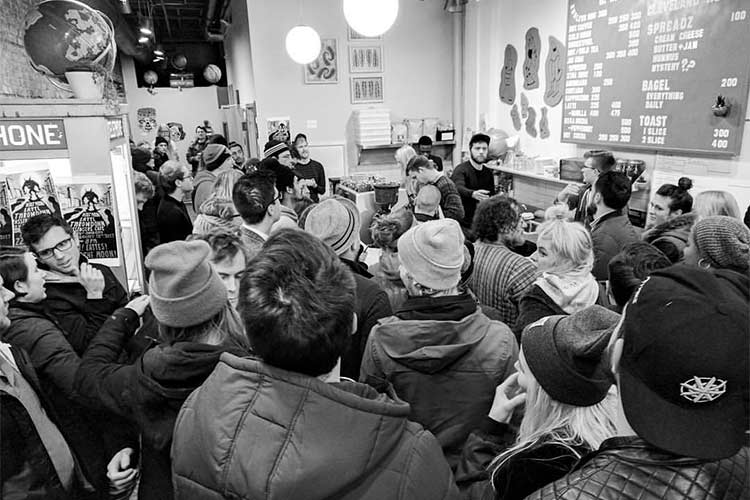 Baristas compete at throwdowns to create the perfect latte, adding their creativity in the designs they fashion in the foam. “They’re a riot, unlike anything you’ve seen,” says Kirchoff.
Baristas compete at throwdowns to create the perfect latte, adding their creativity in the designs they fashion in the foam. “They’re a riot, unlike anything you’ve seen,” says Kirchoff.
When he hosts Thursday Night Throwdowns (TNT) at Passengers, Kirchoff says they are unique to his style—with comedians, a DJ playing live music, and fantastic prizes. He says the crowds that show up to TNTs are a wild and sordid bunch, all competing for what he calls the “crown of brown…and the fleeting esteem of our coffee peers.”
Kirchoff says that while TNTs may be a bit on the wacky side, everyone has fun—and it’s yet another example of how Cleveland’s coffee scene rolls. “Cleveland is a coffee town, and we’re doing it in different ways,” he says. “It’s pretty corny, what we’re doing, taking latte art into competition. And we’re totally sober.”
Friendly competition
While some might assume a growing coffee scene would fuel competition, many local shop owners see it differently. After all, the specialty coffee market is a tough one to compete in—with the Specialty Coffee Association estimating craft coffee consumption makes up only 37 percent of the market.
Brown estimates Cleveland’s numbers are even lower, because some customers consider craft coffee to be too expensive. “Fifteen percent of coffee drinkers only drink craft coffee—the rest are your Folgers, Dunkin Donuts, or McDonald’s [drinkers],” explains Brown. “So, all of us can compete for that 15 percent, or we can collaborate and bring that number up to 20 percent. It just makes sense all around.”
Brown wants to see Cleveland’s coffee purveyors team up to promote their beverages. “Ways to collaborate would be to talk up other shops and reinforce the idea that a good cup of coffee has value and that the slight increase in cost is worth it,” he says.
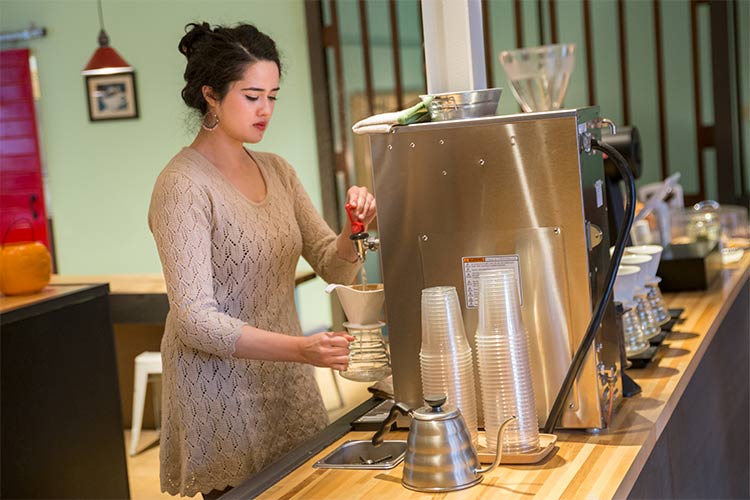 Kirchoff is helping to lead that charge with the Disloyalty Card program, now in its second year. Designed as a “coffee crawl” of sorts, the punch-card rewards program encourages local coffee enthusiasts to visit six different shops downtown and on the near west side. Participants include Pour Cleveland, Passengers Café, Six Shooter Coffee, Phoenix Coffee, Duck-Rabbit Coffee, and Rising Star Coffee.
Kirchoff is helping to lead that charge with the Disloyalty Card program, now in its second year. Designed as a “coffee crawl” of sorts, the punch-card rewards program encourages local coffee enthusiasts to visit six different shops downtown and on the near west side. Participants include Pour Cleveland, Passengers Café, Six Shooter Coffee, Phoenix Coffee, Duck-Rabbit Coffee, and Rising Star Coffee.
“Trey is probably the best ambassador for coffee in Cleveland,” says Eisenstat. “There’s a healthy amount of competition, but in the end we’re all eager to help out. We’re all better for each other if we’re all around.”
As the lead barista at Passengers Café for the last two years, Ian Douglas appreciates Cleveland’s cooperative attitude in the coffee scene. “Other towns may have a more competitive culture, but in Cleveland, we’re very DIY and we appreciate each other,” he says. “Since our community is building and because there are more places to get specialty coffee [besides] mega-roaster conglomerate coffee shops, it works. Coffee fuels the dream.”


